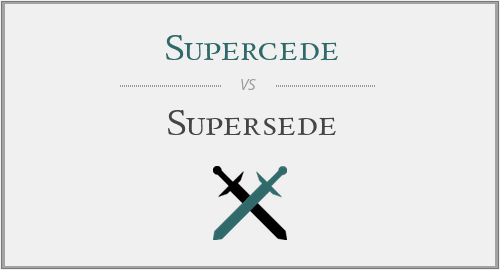English is a language rife with intricacies, and one such complexity lies in the distinction between "supercede" and "supersede." Let's delve into the nuances and usage of these similar-sounding words.
1. Supercede
"Supercede" is a common misspelling of the word "supersede." Despite its prevalence, "supercede" is not considered a standard spelling in most English dictionaries. Nevertheless, it is occasionally used in informal contexts or by those unfamiliar with the correct form. Examples of "supercede" in usage may include:
- The new policy aims to supercede the outdated regulations.
- His innovative ideas will supercede the traditional methods.
2. Supersede
"Supersede" is the correct and widely accepted spelling of the word, meaning to replace or take the place of something or someone. Examples of "supersede" in usage include:

- The digital format has superseded physical copies in many industries.
- New technology often supersedes older models.
It's important to note that "supersede" is the standard spelling recognized by dictionaries and grammar authorities.
Conclusion
While "supercede" may appear in informal contexts, "supersede" remains the correct and preferred spelling in formal writing and standard English usage. Understanding the distinction between these two words enhances clarity and accuracy in communication.








Have a discussion about this article with the community:
Report Comment
We're doing our best to make sure our content is useful, accurate and safe.
If by any chance you spot an inappropriate comment while navigating through our website please use this form to let us know, and we'll take care of it shortly.
Attachment
You need to be logged in to favorite.
Log In